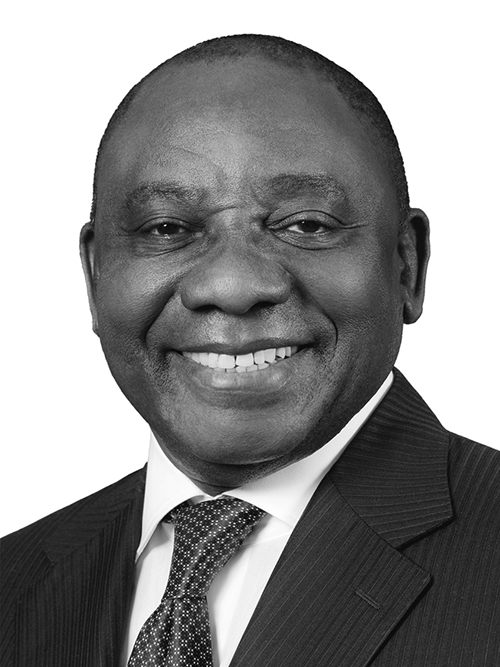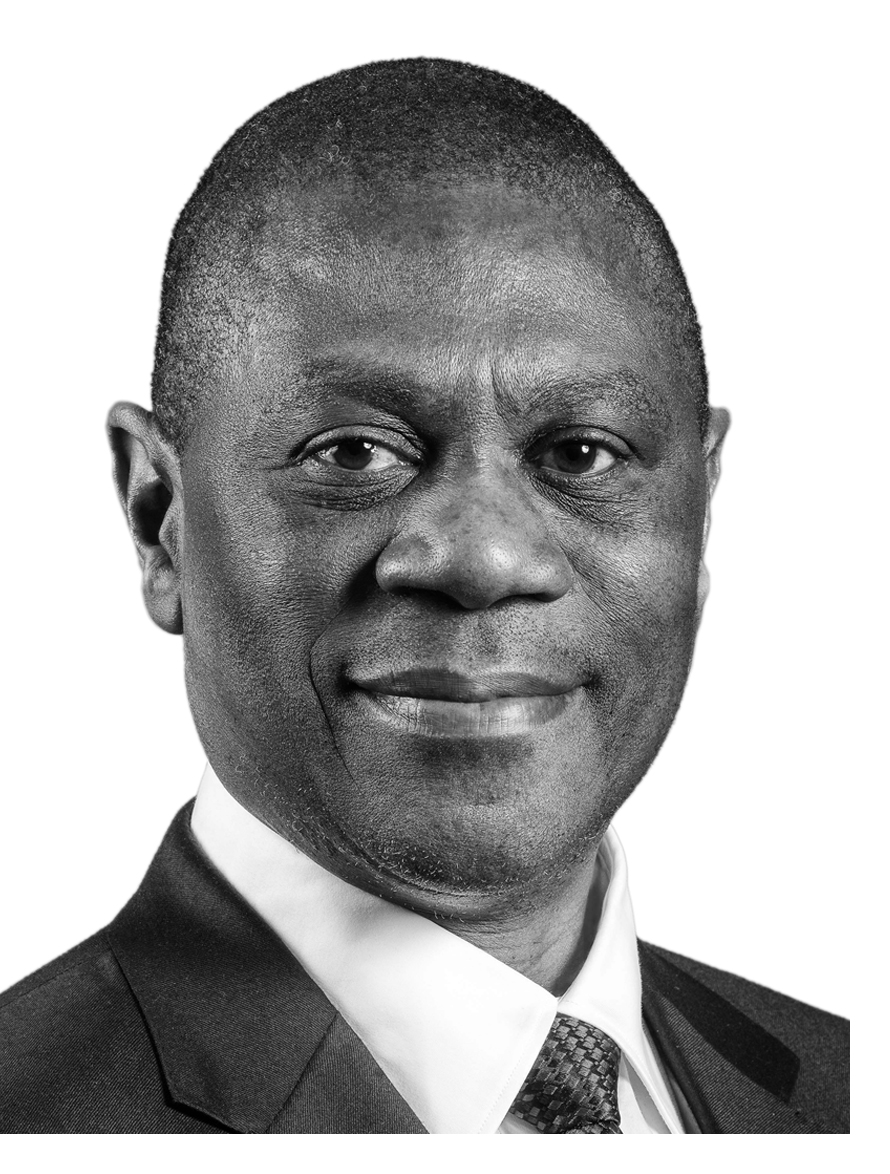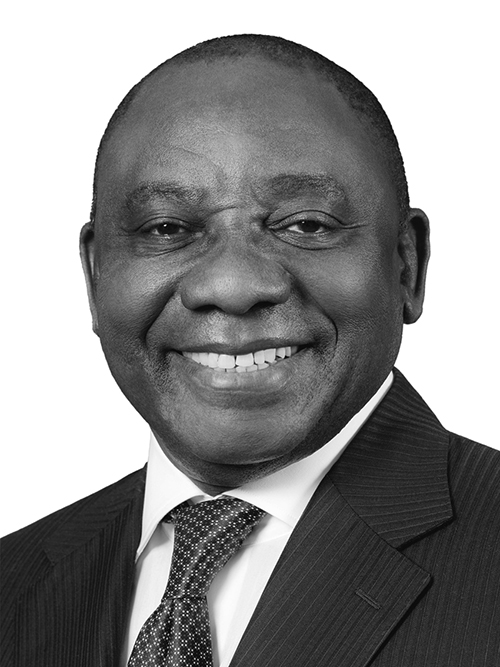Facilitators: Prof JJ Tabane, Ms Joanne Joseph, and Prof Bonang Mohale;
The MEC for Transport and Human Settlements, Siboniso Duma;
Minister of Trade, Industry and Competition, Mr Parks Tau;
Inkosi Tembe, Inkosi Zondi and all our esteemed Traditional Leaders present;
National Empowerment Fund Chairperson, Dr Nthabiseng Moleko;
Durban Chamber of Commerce and Industry CEO, Ms Palesa Phili;
Former Statistician General, Dr Pali Lehohla;
Panelists, Industry Leaders, and Distinguished Guests;
Ladies and Gentlemen,
Thank you for inviting me to engage in this important dialogue on the future of Broad-Based Black Economic Empowerment (B-BBEE).
On this occasion, the term "frank dialogue" is particularly fitting, because after more than thirty years of democracy, entrenched economic patterns remain, and we must address them honestly, with evidence, and with a commitment to practical action.
It is commendable that today’s discussions predominantly revolve around accelerating transformation in sectors that are currently inaccessible to many of our people. The focus has been on collaboratively establishing an economy where opportunities are not limited to a privileged few but are considered a fundamental right for everyone.
I fully agree with the prevailing view among panelists that it is crucial to address historical inequities for fostering inclusive growth, emphasising the need for transformative policies such as the B-BBEE.
However, I acknowledge that the implementation of B-BBEE has faced inconsistencies and various hurdles over the years, some of which are still evident today. Economic opportunities remain largely concentrated, accompanied by significant skill deficits that impede the policy's effectiveness. Furthermore, procurement processes often marginalise Black-owned enterprises, contradicting the B-BBEE's objectives.
We must also be frank: policy legitimacy depends on outcomes. Where empowerment becomes paper based rather than production-based, where fronting occurs, and where exclusion persists, trust is weakened.
We need to bolster monitoring and enforcement mechanisms to close the gaps exploited by fronting practices, thereby aligning agency interests more closely with the principles of B-BBEE. Our enforcement posture must therefore be firm and consistent, supported by credible oversight.
Importantly, it is essential not to conflate the failures of implementation and broader governance issues with the intrinsic purpose and design of B-BBEE. It is misleading to attribute complex macroeconomic outcomes solely to the policy while ignoring other pressing factors, including structural constraints.
Such factors, however, do not necessitate the abandonment of the policy. To put it plainly, abandoning B-BBEE is not an option. The path forward is reform, strengthening, and disciplined implementation.
This is why Government is undertaking a two-phase review of the B-BBEE framework, led by the Department of Trade, Industry and Competition, led by Minister Parks Tau. The aim is clear: refine and reinforce the policy so that it drives transformation, reduces corruption, and promotes inclusive, broad-based growth.
Despite its shortcomings, B-BBEE has led to measurable progress in inclusion, notably evidenced by the growth of the Black middle class and advancements in industries such as mining and finance. The BEE Commission’s 2022 National Status Report highlights annual certification data that tracks improvements in ownership, management control, skills pipelines, and supplier development, suggesting that transformation is advancing, albeit unevenly, rather than stagnating.
This incremental upward trend is consistent with Government's stance that B-BBEE is a vital policy tool for promoting the meaningful involvement of historically disadvantaged groups, specifically women, youth, and persons with disabilities, in sectors where inequality persists.
It is critical to highlight that B-BBEE is also a moral obligation rooted in democratic processes. It aligns with Section 9(2) of the Constitution, which allows corrective actions to promote equality and redress discrimination.
Ladies and gentlemen,
I must also emphasise that transformative policies such as Affirmative Action, Employment Equity, and B-BBEE remain absolutely necessary because exclusion remains measurable and because exclusion remain unabated.
Thus these transformative policies offer an opportunity to shape a future where everyone has equal opportunities, despite not starting from an equal footing. These policies are essential in addressing the significant wealth gap between Black and White South Africans, highlighting the need for race-based laws to ensure a more equitable playing field.
It is through proper implementation that we can also address unemployment and youth exclusion in the key economic activities.
In Q4 2025, Stats SA reported an official unemployment rate of 31.4%, with about 7.8 million unemployed. The same QLFS reported a combined measure (unemployment + potential labour force) of 42.1%, with discouraged work seekers at 3.7 million.
Youth exclusion is particularly severe: unemployment for 15–24 stood at 57.0%, and for 25–34 at 39.2%; around 3.5 million young people aged 15–24—34%—were NEET. On poverty and inequality, the World Bank notes subdued growth (0.6% in 2024, about 0.7% projected in 2025) and that this is insufficient to shift socio economic outcomes, while inequality remains extreme (Gini about 63), with the bottom 40% at 11.5% of income and the top 20% at 59.9%.
Therefore, programme directors, as we fight unemployment, we must also focus on employment equity, which remains essential. The Commission for Employment Equity has noted persistent gaps, including that representation of Persons with Disabilities has remained around 1% over many years, showing how slow real inclusion can be without stronger delivery.
Through proper implementation of the B-BBEE, we push companies to diversify their workforce, set representation targets, and invest in training for historically disadvantaged individuals, directly aligning with EE Act goals.
This also means that we must ensure that women’s economic inclusion is both tangible and measurable, but not rhetorical. It is for this reason that we have dedicated instruments, like the NEF Women Empowerment Fund and Isivande Women’s Fund, that can unlock women’s enterprise growth when paired with market access.
Ladies and Gentlemen,
If we are serious about advancing the future of B-BBEE, we need to urgently address the equal need for inclusion of the Black majority in key sectors of the economy, such as agriculture, mining, finance and manufacturing.
We are all aware that transformation remains a challenge in these sectors, particularly in agriculture. As economist Wandile Sihlobo reminds us in his book A Country of Two Agricultures, Black farmers currently account for only around ten percent (10%) of South Africa’s commercial agricultural output. This stark figure tells us that our growth agenda must have a deliberate bias towards the empowerment of Black farmers.
Therefore, B-BBEE provides us with the tools to bridge this divide. Through ownership, we can ensure that land reform and the release of Government land translate into genuine stakes for Black farmers in commercial agriculture. Through skills development, we can invest in training, mentorship, and bursaries that equip emerging farmers with the technical expertise to thrive in modern agribusiness.
Through Preferential Procurement, we can open markets by requiring that Government institutions and retailers source produce from Black-owned farms, creating stable income streams and reducing exclusion. Through enterprise and supplier development, we can incubate Black-owned farming enterprises, provide access to finance and equipment, and integrate them into agro-processing and distribution networks.
The Competition Commission’s work shows high concentration persists and that highly concentrated markets are more likely to become more concentrated over time. It also shows that although SMEs are about 95% of firms, they contribute only 24% of turnover, while large firms (5%) contribute 76%, a sign of structural barriers to scaling and participation. So, empowerment must be about opening value chains and expanding productive inclusion, not only compliance.
We also need to utilise B-BBEE to ensure that, in the near future, we have equal participation of Black people in the ocean economy.
The KwaZulu-Natal Province is home to two of Africa’s most strategic maritime assets: the Ports of Durban and Richards Bay. These ports are more than points of trade; they anchor South Africa’s ocean economy and sit at the centre of our ambitions for industrial growth, investment, and job creation.
South Africa’s ocean economy holds immense potential: our ports, our fisheries, our marine manufacturing, our coastal tourism, and even our emerging sectors like biotechnology and renewable ocean energy.
Yet we must confront an uncomfortable truth: as with agriculture, participation remains skewed. If transformation is to be meaningful, then Black entrepreneurs, professionals, and communities must be at the centre of this growth.
The evidence cited above highlights the need for a new BBBEE model and an economy-wide transformation policy shift. It must be based on the following essential pillars:
Firstly, broadening black economic empowerment necessitates some strategic policy implementation choices drawing on the research cited above. A primary point relates to the relationship between B-BBEE and South Africa’s overall economic development policy mix. Macro-economic trends and policy framework implementation choices influence the socio-economic impact of B-BBEE significantly.
Improving alignment between B-BBBE, industrial, competition, fiscal and monetary policy areas could potentially produce greater social returns. Recent developments in the implementation of the competition legislation are instructive for building this alignment between B-BBEE and the overall economic development policy mix.
For example, the merger and acquisition decision making from the Competition Commission in some cases has elevated the wider B-BBEE social returns and socio-economic indicators. This policy mix approach can equally be applied in fiscal, monetary, and industrial policy areas.
Secondly, policymakers need to connect B-BBEE and with industrial diversification. This point specifically applies to nascent or emerging sectors that are in early stages of production life cycles. B-BBEE can be enhanced when creating the regulatory and economic rent frameworks in nascent sectors such as renewable and hydrogen energy.
However, this proposition needs a well-planned value chain approach, which transcends the current focus on the ‘enterprise and supplier development’ element in the existing B-BBEE codes.
Thirdly, public interest outcomes and models of social ownership need to feature prominently in future B-BBEE policy implementation. These include positive socio-economic outcomes such as employment creation, strengthening SMME growth, expanding forms of social ownership, and restructuring unequal spatial development patterns in SA require more attention.
Emphasis is placed on financial indicators in B-BBEE transaction socio-economic analyses such as share allocation, dividend accumulation and budget allocation for specific B-BBEE code elements. This approach has not yielded the social returns necessary for addressing perennial race, class, and gender socio-economic inequalities. This implies examining B-BBEE policy successes and shortcomings using a different socio-economic matrix, which goes beyond the B-BBEE codes.
Fourthly, the ongoing BBBEE policy review should enhance policy coherence and adherence to the law. Section 10 of the BBBEE Act is a useful tool that can be used to achieve this objective. Government licensing, authorisations, regulatory certification and permits are essential instruments in strengthening transformation policy synergies. These regulatory mechanisms ensure that private sector economic actors only access state regulatory benefits if they meet BBBEE targets.
Programme Director, as I conclude, let me re-iterate the message of President Cyril Ramaphosa when he replied to the debate on the State of the Nation Address. The President emphasised that we must see broad-based black economic empowerment not as a cost to the economy, but as an investment in the sustainable growth of our economy.
The message from this frank dialogue must therefore be clear: we are not retreating from transformation; we are deepening transformation and aligning it to measurable outcomes that create jobs, build enterprises, open markets, and protect integrity.
Accordingly, we are placing emphasis on five measurable outcomes, namely: procurement, finance, supplier graduation, management control, and enforcement, so that we can track progress transparently and correct course quickly.
We further emphasise that gender inclusion is non-negotiable. We cannot accept a situation where women remain structurally excluded from ownership, access to markets, and leadership positions, particularly when there is clear evidence that women-owned enterprises are able to create jobs and build sustainable economic capability when properly supported.
Finally, we must protect the integrity of empowerment. Fronting is economic sabotage; it will be confronted through stronger verification, faster case finalisation, and real consequences.
Let this dialogue mark a shift from compliance to outcomes, from rhetoric to delivery, and from exclusion to productive inclusion.
I thank you.










